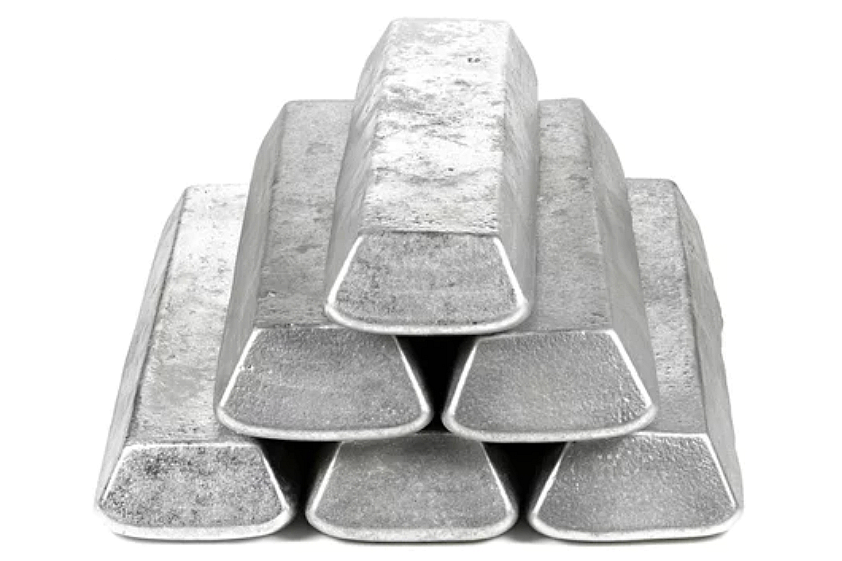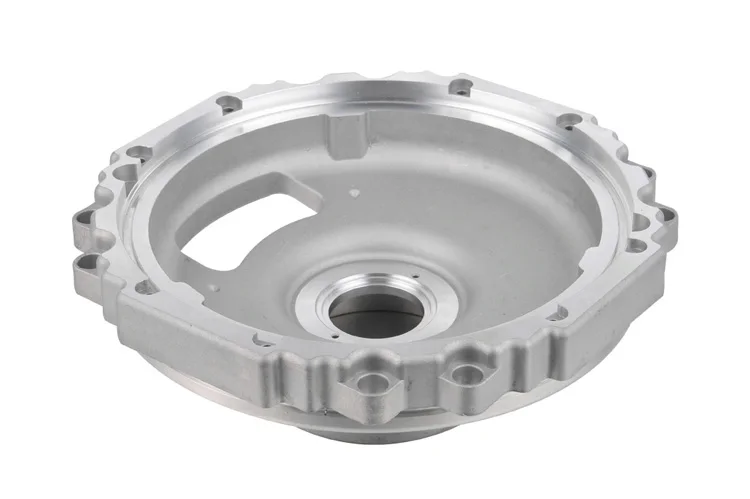Exploring the Innovative Procedures Behind Modern Aluminum Factory Workflow
Modern aluminum factory procedures are going through considerable improvement. Automation and AI are improving manufacturing approaches, improving both performance and accuracy. The assimilation of 3D printing is improving mold development, while sustainability methods are becoming much more necessary. Each of these advancements plays a vital role in redefining the sector. However, the ramifications of these changes extend past mere manufacturing efficiency. What difficulties and possibilities lie ahead for aluminum shops in this advancing landscape?
The Function of Automation in Aluminum Foundries

Automation contributes to boosted safety and security criteria within the factory atmosphere. By moving harmful tasks to makers, human employees can focus on supervisory roles and top quality control, lessening the threat of mishaps. Furthermore, data analytics originated from automated procedures give useful insights right into functional performance, causing much better decision-making and continuous enhancement. As the need for aluminum products grows, the adoption of automation innovations will likely increase, even more changing the landscape of light weight aluminum shop procedures.
Developments in Spreading Technologies
Recent advancements in casting technologies are transforming light weight aluminum shop operations. Advancements such as 3D printing combination, advanced alloy formulations, and automated process optimization are improving performance and item quality. These growths are critical in meeting the evolving demands of the market.
3D Printing Integration
Incorporating 3D printing modern technology right into aluminum factory procedures has transformed conventional spreading methods, improving both efficiency and precision. This cutting-edge method permits the quick production of complicated mold and mildews and cores, significantly minimizing preparations and material waste. By using additive production, foundries can develop detailed geometries that were difficult or previously difficult to achieve with traditional techniques. The adaptability of 3D printing also allows quick layout adjustments, fostering an extra agile production procedure. Furthermore, this integration sustains using light-weight structures, which is increasingly essential in industries such as vehicle and aerospace. As light weight aluminum factories proceed to take on 3D printing, they place themselves at the forefront of technological advancement, driving renovations in item top quality and functional capacities.
Advanced Alloy Formulations
The development of advanced alloy solutions has actually greatly enhanced casting technologies in light weight aluminum foundry procedures. These solutions incorporate various components, such as copper, magnesium, and silicon, to boost mechanical residential properties and thermal resistance. By tailoring the structure of aluminum alloys, manufacturers can attain specific performance features that fulfill the needs of diverse applications, from automobile elements to aerospace frameworks. The use of sophisticated alloys likewise adds to lowered weight and enhanced strength, which are important factors in modern design. Additionally, developments in alloy advancement enable far better fluidness throughout casting, causing enhanced surface area finishes and minimized flaws. On the whole, advanced alloy formulas stand for a substantial jump forward, positioning light weight aluminum foundries to meet the progressing needs of various markets successfully.
Automated Process Optimization
Improvements in casting technologies have led the method for automatic procedure improvement in aluminum foundry operations. By incorporating advanced software application and real-time data analytics, factories can now simplify manufacturing procedures and boost quality assurance. Automated systems monitor variables such as air conditioning, pressure, and temperature rates, enabling prompt modifications that minimize issues and waste. Furthermore, maker knowing formulas assess historical efficiency data to anticipate ideal settings, thereby boosting performance and decreasing cycle times. Robotics also play a significant duty, dealing with repeated tasks that enhance safety and accuracy. In general, these technologies not only drive functional effectiveness however additionally enable foundries to meet the expanding need for top quality light weight aluminum components in different industries.
Smart Production and Market 4.0 Assimilation
The integration of Smart Manufacturing and Industry 4.0 within aluminum factories is changing functional efficiency. By leveraging IoT modern technologies, automation, and robotics, foundries can optimize production processes and minimize downtime. Furthermore, information analytics gives crucial understandings that boost decision-making and drive constant improvement.
IoT in Shop Operations
As suppliers significantly accept the Net of Points (IoT), shop operations are experiencing a transformative shift in the direction of wise production and Sector 4.0 combination. Aluminum Casting Company. IoT innovations allow real-time data collection and analysis, improving decision-making procedures and operational efficiency. Sensing units and linked tools keep track of devices performance, product use, and environmental problems, permitting positive upkeep and source optimization. This connection cultivates an extra active production atmosphere, where adjustments can be made promptly in response to market demands. Additionally, IoT promotes improved traceability and top quality control, as data from the entire production cycle can be conveniently accessed and examined. Overall, the assimilation of IoT in foundry operations considerably improves productivity and drives technology in aluminum manufacturing processes
Automation and Robotics Combination
Automation and robotics combination is reinventing light weight aluminum shop procedures by enhancing effectiveness and precision. check out this site This transformative strategy streamlines procedures such as molding, pouring, and completing, lowering human mistake and raising outcome consistency. By utilizing advanced robot systems, foundries can achieve greater production prices while keeping rigid top quality criteria. Automated systems likewise make it possible for real-time monitoring and adaptive control, permitting quick adjustments to manufacturing criteria. Additionally, the integration of robotics decreases labor costs and reduces security threats related to hand-operated handling of molten steel. As foundries welcome smart production principles integral in Industry 4.0, the synergy in between automation and robotics strengthens their one-upmanship, paving the way for sustainable growth and development in the light weight aluminum spreading market.
Information Analytics for Effectiveness
Taking advantage of data analytics greatly boosts effectiveness within aluminum foundry procedures, straightening with smart manufacturing and Market 4.0 concepts. By leveraging real-time information collection and evaluation, factories can keep an eye on manufacturing processes, anticipate equipment failures, and enhance source allocation. This data-driven technique assists in insightful decision-making, enabling supervisors to recognize traffic jams and enhance workflow. Additionally, predictive analytics equips shops to anticipate market demands, thus minimizing waste and making certain timely product shipment. Integration of data analytics with IoT tools improves functional presence, cultivating a positive maintenance culture. Ultimately, applying these advanced logical methods not only boosts performance but additionally drives advancement, positioning aluminum shops to satisfy the advancing needs of the industry while keeping one-upmanships in a swiftly altering landscape.
Lasting Practices in Aluminum Spreading
While the light weight aluminum spreading market has generally encountered environmental difficulties, numerous foundries are now taking on sustainable methods to reduce their effect (aluminum casting). A considerable focus has actually gotten on recycling light weight aluminum scrap, which not only reduces waste but also saves power compared to main aluminum manufacturing. Cutting-edge melting modern technologies, such as induction heaters, boost power efficiency and lower greenhouse gas discharges
In addition, foundries are carrying out closed-loop water supply to lessen water consumption and lower thermal air pollution. Using eco-friendly binders in mold-making procedures is acquiring traction, further lowering unsafe exhausts.
In addition, some centers are purchasing eco-friendly power sources to power procedures, aligning with worldwide sustainability goals. By integrating these techniques, the light weight aluminum spreading sector is advancing toward an extra ecologically responsible future, showing that economic development can exist side-by-side with eco-friendly stewardship - Precision aluminum casting. These initiatives show a dedication to sustainability and the relevance of environmental liability in manufacturing
Top Quality Control Innovations
As the light weight aluminum casting industry developments in the direction of sustainability, the value of quality control advancements comes to be progressively noticeable. Modern light weight aluminum factories are adopting innovative technologies to enhance their quality control procedures. Techniques such as real-time tracking and information analytics permit suppliers to spot issues and variances early in the production cycle. Applying automatic examination systems equipped with maker learning formulas warranties that products satisfy stringent quality criteria while reducing human mistake.
Furthermore, the assimilation of non-destructive screening approaches, such as radiographic and ultrasonic assessments, gives deeper understandings into the integrity of spreadings without damaging the material. These developments not only boost product integrity but likewise minimize waste, aligning with sustainability goals. In addition, the fostering of standardized quality frameworks assists enhance procedures throughout various shops, ensuring uniformity in result. Jointly, these innovations are reshaping quality control, cultivating a culture of quality within the light weight aluminum spreading industry.
Future Fads in Light Weight Aluminum Shop Workflow
What innovations lie ahead for aluminum shop operations? The future of light weight aluminum shops is positioned for makeover via developments in automation, expert system, and sustainable practices. The assimilation of robotics and automated systems is expected to boost performance and accuracy in the casting procedures, minimizing human error and labor expenses. In addition, AI-driven analytics will make it possible for real-time tracking and anticipating upkeep, optimizing functional efficiency and reducing downtime.
Sustainability remains a focal factor, with her explanation foundries significantly embracing environmentally friendly practices, such as using recycled aluminum and establishing low-emission melting modern technologies. Innovations in 3D printing are additionally anticipated to change mold-making, allowing for intricate geometries and reduced material waste. As the industry accepts digitalization, data-driven decision-making will become pivotal, enabling factories to respond promptly to market needs. Collectively, these trends promise to redefine light weight aluminum foundry operations, making them a lot more effective, sustainable, and adaptable to future challenges.

Frequently Asked Inquiries
What Security Actions Are Executed in Aluminum Foundry Operations?
Aluminum factory procedures implement different precaution, including individual safety tools, air flow systems to manage fumes, normal security training, emergency feedback strategies, and rigid monitoring of temperature and devices to avoid crashes and guarantee worker safety.
Just How Do Factories Take Care Of Workforce Educating for New Technologies?

What Materials Are Commonly Recycled in Aluminum Foundries?
Light weight aluminum foundries typically reuse scrap aluminum, including post-consumer products like beverage cans, automobile components, and building and construction products. This recycling procedure reduces waste and conserves sources, contributing to a much more sustainable light weight aluminum manufacturing industry.
Just How Does Light Weight Aluminum Spreading Impact the Environment?
Aluminum casting effects the atmosphere through energy-intensive procedures, greenhouse gas exhausts, and potential local air pollution. Innovations in recycling and lasting methods can alleviate these effects, promoting an extra environment-friendly method to light weight aluminum manufacturing.
What Are the Normal Lead Times for Aluminum Spreading Projects?
Common lead times for light weight aluminum casting jobs vary significantly, usually varying from two to 6 weeks. Aspects affecting these timelines consist of complexity, order dimension, and material availability, affecting total manufacturing routines in foundry procedures.
Automation progressively plays an essential function in aluminum foundries, enhancing effectiveness and precision in the manufacturing procedure. Improvements in casting innovations have actually paved the way for automatic process improvement in aluminum foundry operations. Utilizing data analytics considerably enhances performance within aluminum factory operations, lining up with wise manufacturing and Market 4.0 concepts. A substantial focus has actually been on reusing light weight aluminum scrap, which not just lowers waste however likewise preserves power compared to primary light weight aluminum manufacturing. Light weight aluminum foundries typically recycle scrap light weight aluminum, consisting of post-consumer items like beverage cans, automobile parts, and building and construction products.